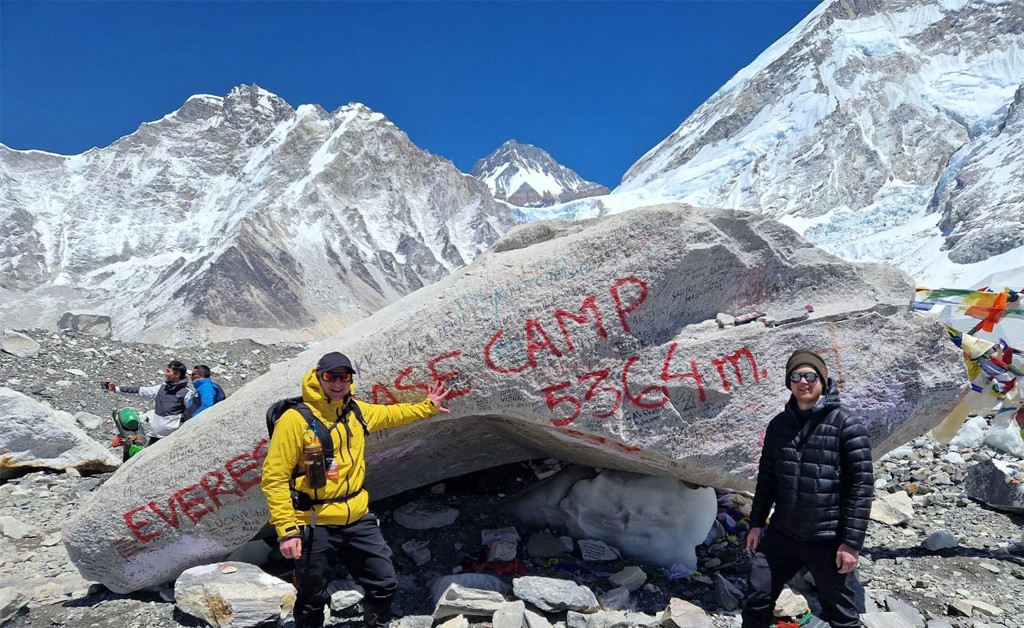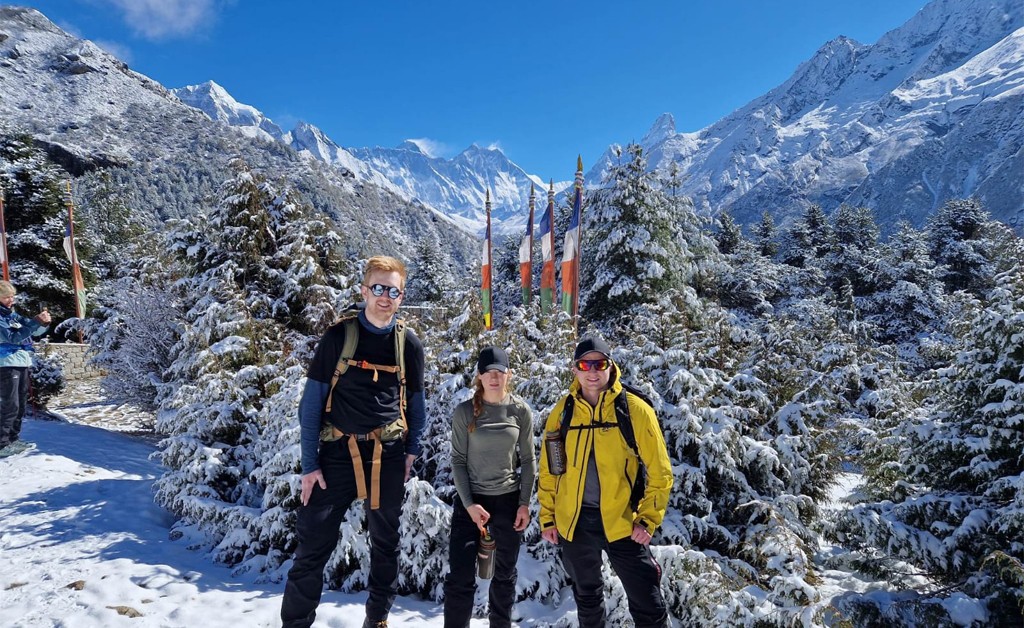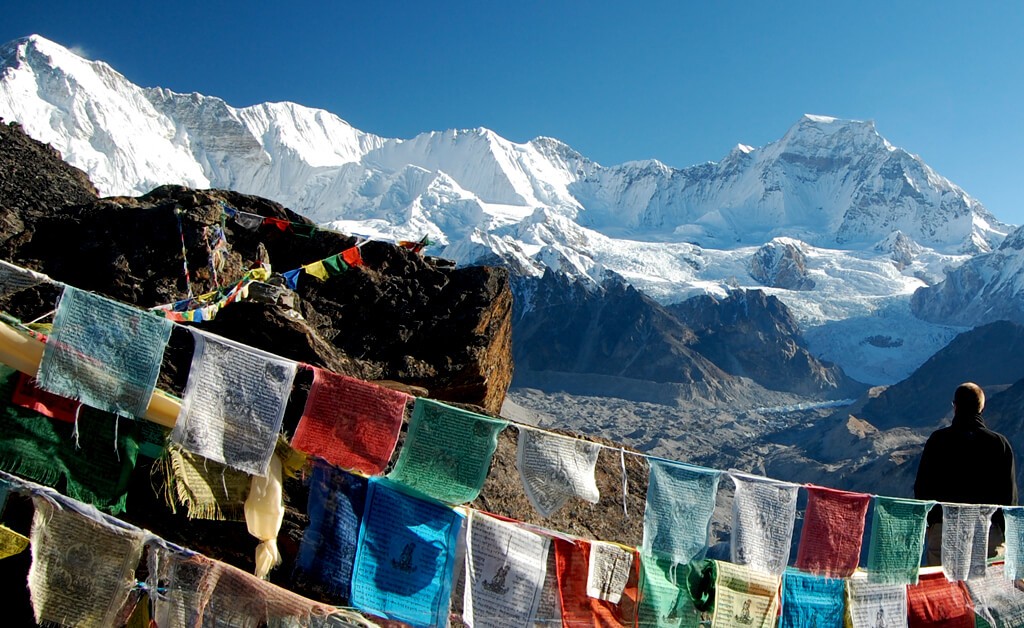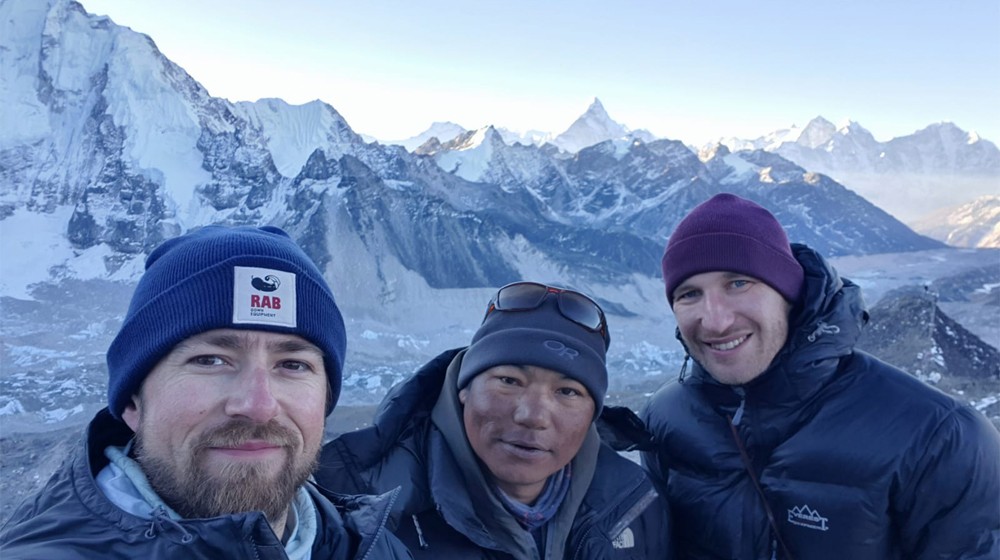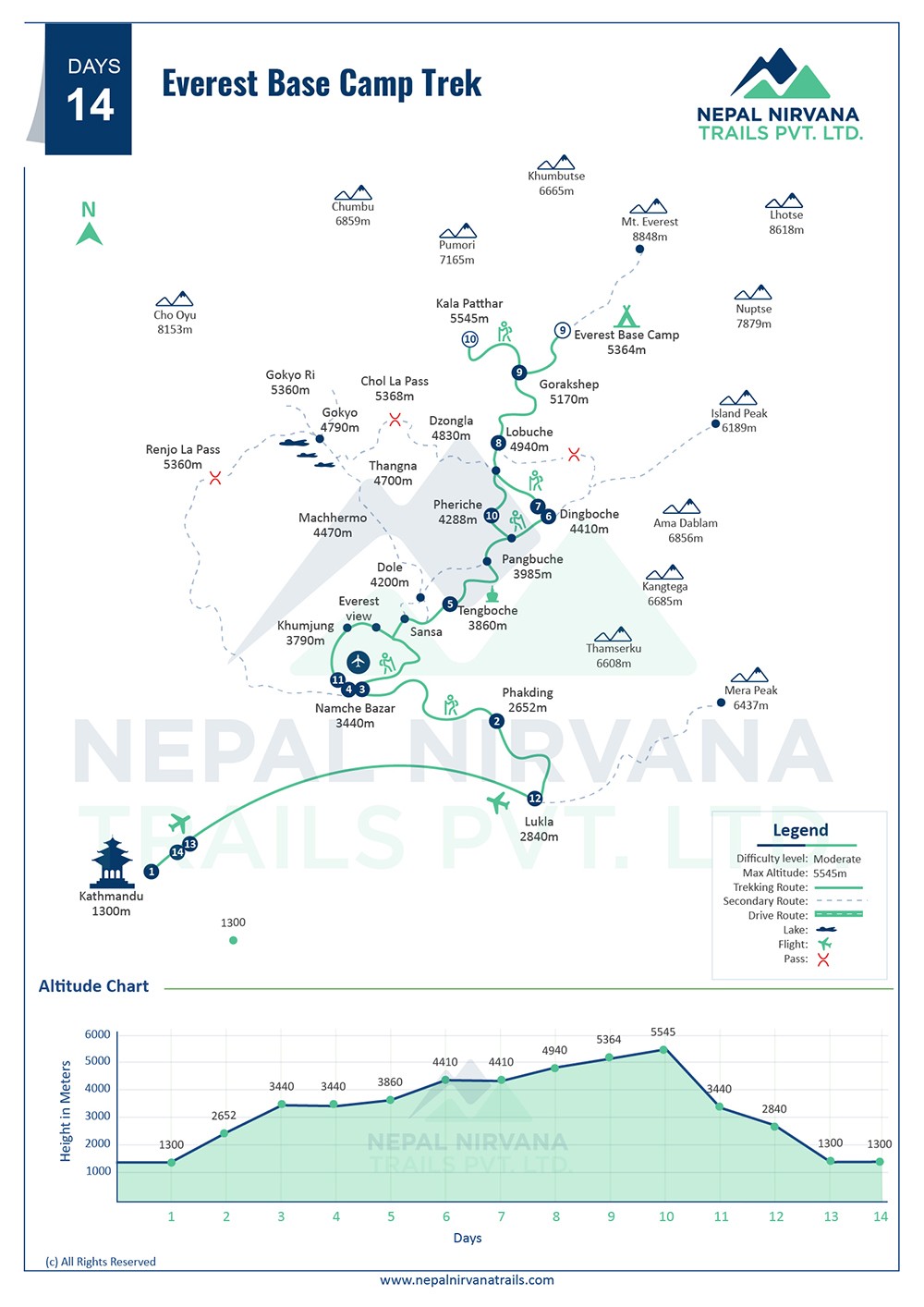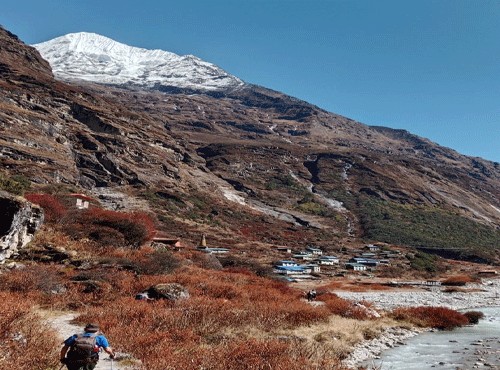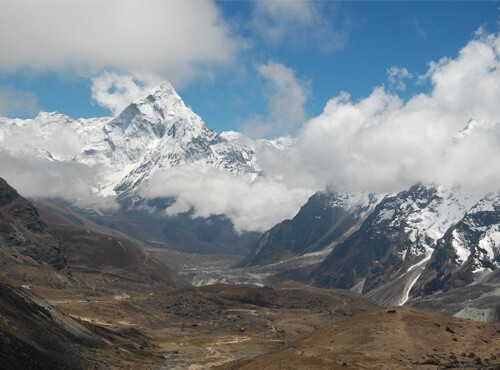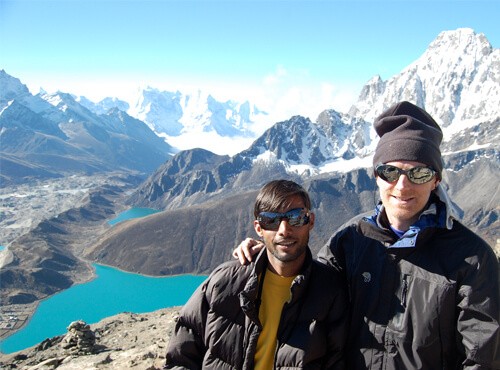Kathmandu Lukla Flight
Lukla Airport is situated at 2,845 meters. Because of the high altitude, the flight can get delayed or canceled sometimes too. If the flight gets canceled, we will book you the next possible flight. Likewise, in the case of an emergency, we can also charter a helicopter.
*Note: Additional charges will be applied while booking any extra accommodation, flights, or chartering a helicopter.
Everest Base Camp Trek difficulty
The difficulty level of the Everest Base Camp Trek is moderate. The journey is surely not easy as it involves long walking hours (minimum 5 to 6 hours a day), steep and rugged terrain, numerous ascents & descents, and high altitude.
At the same time, with a proper Everest Base Camp Trek itinerary and crew, anyone can do this trek. Some parts of the Everest Base Camp Trek route can get challenging for beginners.
Altitude Sickness
There is always an underlying chance of altitude sickness during Everest Base Camp Trekking. The initial phase of the trek takes you from Kathmandu (1,300 m) to Lukla Airport (2,845 m), which is a drastic change in elevation in a matter of around 35 minutes. Likewise, if the itinerary is not designed professionally, you may gain elevation more than you should each day, and that can trigger altitude sickness.
Do the following things to stay away from altitude sickness during the Everest Base Camp Trek, Nepal:
- Talk to your trekking company and get a detailed itinerary with elevation, walking distance, and walking time. See if it suits your body and health or not. Do the necessary changes if required.
- Always maintain a 500 to 600-meter rise in elevation (each day) during the trek.
- Walk slowly, do not rush, and take plenty of rest/sleep.
- Drink at least a couple of liters of water every day, and do not drink alcoholic drinks or anything that can dehydrate your body.
- If you see any early symptoms of altitude sickness like headache, insomnia, difficulty in breathing, dizziness, etc. inform your team leader and take the proper measures.
Everest Base Camp Trek distance
The Everest Base Camp Trek covers approximately 140 km (86.9 miles) both ways.
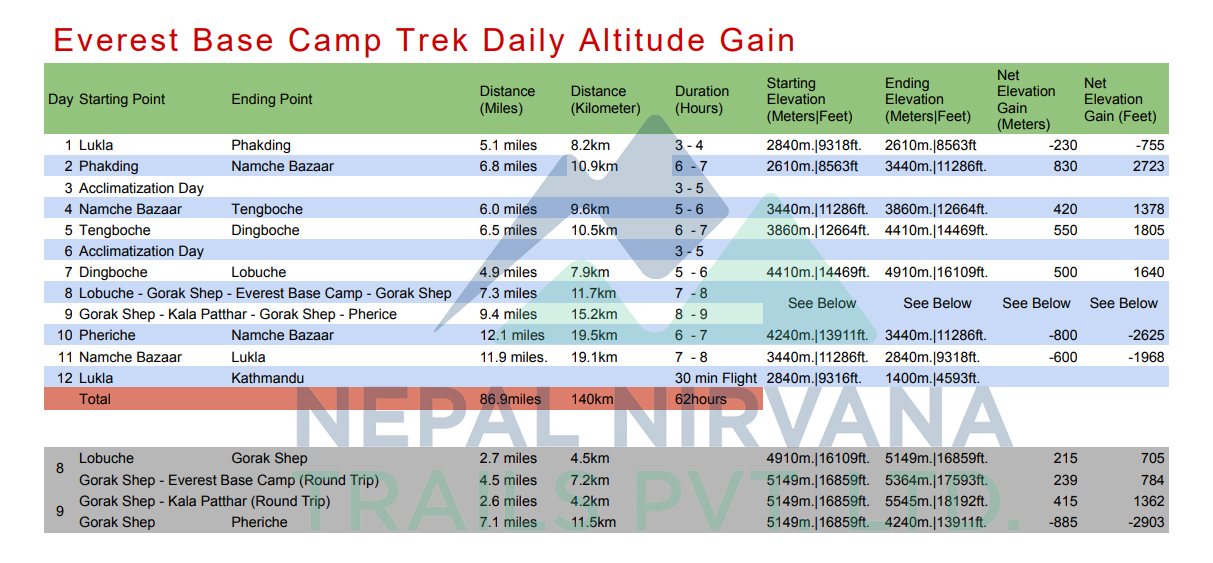
Everest Base Camp Trek route
Our Everest Base Camp Trek - 14 Days begins with a short flight from Kathmandu to Lukla. Lukla is the starting point of the trek. Here, you will be joined by the porters and begin descending alongside Dudh Koshi River to Phakding village to spend the first night.
The next day, you will continue trekking crossing numerous suspension bridges. At Monjo, we will register our permit and begin walking inside the Sagarmatha National Park. The trail ascends through remote settlement areas and involves steep climbing to Namche Bazaar.
We will spend our first acclimatization day in Namche Bazaar and hike to the Everest View Hotel to witness stunning snow-capped mountain views. From Namche Bazaar, you will trek through Pangboche village and pass by lush rhododendron forests to Tengboche.
Tengboche onwards, you will be following a rugged route to Dingboche and ascending to Lobuche. Further, passing by Gorak Shep, we walk on the lateral moraine of the Khumbu Glacier and reach Everest Base Camp. The next day, you will hike to Kala Patthar's viewpoint and descend to Pheriche. From Pheriche, you will trek back to Lukla, retracing the same path.
Training for the Mount Everest Base Camp Trekking
To prepare for the Everest Base Camp Trek 2026|2027, you can go on hikes that at least involve 5 to 6 hours of walk. You have to train your body to walk a minimum of 6 hours on rugged terrain. Duration is more important than distance.
Likewise, you can increase your stamina by cycling, jogging, and swimming. If you go to the gym, then add cardio and core body strengthening to your routine. Have 4 to 6 weeks on hand to prepare for the trek if you can.
Everest Base Camp Trek Solo, Private, and Group
We have fixed Everest Base Camp Trek departure dates for 2026|2027. You can join one of our groups or organize a private trek if you have your own group.
Similarly, we also offer a solo trek to Everest Base Camp for travelers who want to trek at their own pace. The Everest Base Camp Trek cost we offer is only for our fixed departure dates. If you make changes to the Everest Base Camp Trek itinerary, then the price may differ.
Last Minute Booking for Everest Base Camp Trek
If you wish to join our Everest Base Camp Trek packages at the last minute, then you have to pay 100% of the package cost to confirm the booking.
We will try our best to arrange everything at the last minute. Make sure to be available in Kathmandu at least a day before the beginning of the venture. Get in touch with us anytime for more information.
What permits do I need for the Everest Base Camp Trek?
To do the Everest Base Camp Trek in spring/autumn 2026|2027, you will need two permits, a Khumbu Pasang Lhamu Rural Municipality Entrance Permit and a Sagarmatha National Park Entry Permit. While trekking with us, we will arrange all the permits for you in advance.
- Khumbu Pasang Lhamu Rural Municipality Entrance Permit costs: NPR 2000, per person
- Sagarmatha National Park Entry Permit costs: NPR 3000, per person
Everest Base Camp Trek best time
The best time to trek to Everest Base Camp is from March to April (spring) and October to November (autumn). These months are the peak time to travel in the Himalayas because of stable weather. The moderate climate and clear sky offer stunning panoramas of mountains.
The temperature ranges from 18°C to 5°C. You will feel colder in the nights and mornings comparatively. Likewise, you will get to see a range of flora and fauna while trekking in spring and autumn.
Everest Base Camp trek in winter (December to February) is not advised. As the winter is off-season, you may have to face unstable weather, heavy snowfall, and other unseen events.
Suggested Packing List, EBC Trekking - tour
A lack of necessary trekking equipment would make hiking in the Everest region challenging, so be careful to take only what is necessary while making sure you don't forget the essentials.
Here is a general list of the trekking gear you'll need to make your climb to Everest Base Camp comfortable.
It contains the clothing you'll need to pack to stay warm during the Himalayan region's seasonal climatic changes, equipment to make your journey convenient and comfortable, and supplies to guarantee you one of the greatest experiences of your life.
Please get in touch with our adventure specialists if you have any queries regarding this packing list or about hiking to Everest Base Camp and remember that Kathmandu is an excellent place to find quality trekking supplies at low cost.
· Duffle bag for carrying gear via porters (provided by Nepal Nirvana Trails for each person)
· Down jacket and 4-season sleeping bag (we can provide you one if necessary).
· A 30- to 50-litre daypack with a waterproof cover to carry supplies while hiking.
· Trekking poles for ascents and descents.
· A pair of comfortable trekking boots (waterproof).
· Sandals or Sports shoes for Guest House use.
· Sun Hat / Cap.
· Warm woolen Cap / Beanie.
· Warm fleece jacket or puffer jacket.
· Waterproof Gore-Tex layer.
· Warm Sweater or Pullover.
· 4/5 pairs of good quality socks.
· 2 pairs of trekking trousers.
· 3/4 trekking shirts.
· Few sets of undergarments (non-cotton preferred).
· Moisturizer and sunscreen lotions
· Sunglasses with UV protection
· Gloves.
· Refillable hot water bottles or hydration bladder (i.e. CamelBak) with water purifiers, and toiletries, including toothbrushes, toothpaste, dry and wet tissues, soaps, shampoos, Sanitizer gel or hand wash gel, a lightweight towel, etc.
· Gaiters (needed Dec-Feb)
· Headlamp or torch.
· Camera and batteries.
· First aid kit with essential medicines
Accommodation
Everest Base Camp trek 14 days is a lodge trek. You will stay overnight in a comfortable and clean lodge run by a local family. The room will be small with double beds and a private washroom. Lodges at higher elevations may have a common washroom facility. Do carry a nice sleeping bag to keep yourself warm as the blanket provided by the lodge will not be enough.
Food
Our Everest Base Camp trek package offers three meals (breakfast, lunch & dinner) during the trek. All the meals are given as per the menu of the lodge. The menu usually has multi-cuisine. In Lukla and Namche Bazaar, you can get dishes like pizza, burgers, fish & chips, freshly brewed coffee, bakery items, etc, too.
Generally, dishes like dal bhat, curries (veg/non-veg), momo, noodles, Tibetan bread, porridge, soup, steak, egg, toast, mashed potatoes, oatmeal, sandwiches, etc. Likewise, boiled drinking water is provided in the lodges and tea houses along the route to refill your reusable water bottle. (Nepali food, fresh-cooked, hygienic)
Trek Responsibly
Great adventures bring great responsibilities. As much as we want you to experience the Himalayas, we also want to preserve its spectacular beauty for upcoming generations. As a traveler, you can do various things, from using eco-friendly products while traveling to not throwing trash on the trail.
Similarly, little things like using reusable water bottles, buying souvenirs from local shops, volunteering, trying out Nepali brands for trekking clothes/gear, etc. are some of the things you can practice as a responsible traveler.
Travel Insurance
We highly recommend travel insurance to our guests who are thinking of doing Everest Base Camp Trek for their safety. During the Everest Base Camp Trekking, you will be exploring a remote area, and to offer you immediate medical assistance in case of an accident or any unseen medical emergency (which rarely happens), we are bound to use an airlift.
The rescue providers, especially the emergency evacuation service providers do not get ready until the cost is covered by the travel insurance or the traveler promises to pay the charges. Therefore, travel insurance is significant while trekking to Basecamp Everest.
*Note: Include air evacuation up to 6,000 meters in the travel insurance. Double-confirm all the clauses in the insurance before confirming it.
Travel Tips (electricity, internet, ATM, luggage, tipping, personal expenses)
- There is no ATM above Namche Bazar, therefore withdraw enough cash to use while trekking. You may need some cash to buy extra drinks, snacks, or services like a hot shower, internet, etc., on the way (not covered in the package cost).
- There are charging booths in the lodges where you can charge your devices. You may have to pay a little money for the service. Carry spare batteries or a solar charger.
- The internet connection along the trekking route is not that stable and only gets worse with the increase in the elevation. Do not get caught up in sharing the journey and enjoy as much as you can.
- Store extra luggage in the hotel's locker room for free of cost. Each trekker can carry up to 10 kgs (carried by porters) of trekking necessities.
- Tipping is not included in our EBC trek package cost as it is mandatory though the guide and portet expect some. So it is not compulsory.
- Keep ample cash on the side to buy souvenirs, meals, and drinks. Other expenses like travel insurance, international flight fare, etc. are also not covered in our package cost. Check out our cost includes & excludes section for more information.
